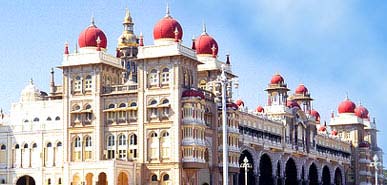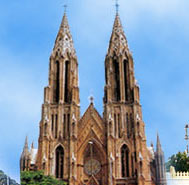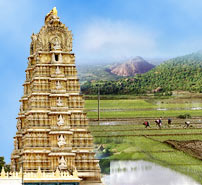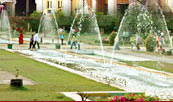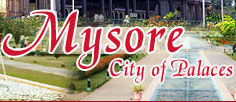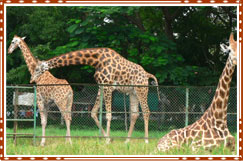 Another
major tourist attraction in Mysore city is the Mysore Zoo. The Mysore
zoo is over a century old and has an interesting history of its own. The
zoological gardens in Mysore were set up by Maharaja Chamaraja Wodeyar
who is acclaimed as one of the architects of modern Mysore. The Maharaja
was a nature buff and set up a number of gardens and parks in Mysore.
The Bandipur Wildlife Sanctuary was established during the reign of the
Maharaja to entertain important visitors to Mysore and give them the
opportunity to observe the animals in their natural habitat.
Another
major tourist attraction in Mysore city is the Mysore Zoo. The Mysore
zoo is over a century old and has an interesting history of its own. The
zoological gardens in Mysore were set up by Maharaja Chamaraja Wodeyar
who is acclaimed as one of the architects of modern Mysore. The Maharaja
was a nature buff and set up a number of gardens and parks in Mysore.
The Bandipur Wildlife Sanctuary was established during the reign of the
Maharaja to entertain important visitors to Mysore and give them the
opportunity to observe the animals in their natural habitat. The Zoological Garden was carved out of a portion of the Summer Palace also known as the Pleasure Palace, which was in the eastern part of the city. The zoo was called Palace Zoo and was inaugurated in 1892. In the beginning the zoo was developed on 10 acres of the Summer Palace. The Maharaja hired Mr. G.H. Krumbeigal a German landscaper and horticulturist to set up the zoo. As the Maharaja was an animal lover he took special care to ensure that all the enclosures for the animals were spacious and aesthetically built. The enclosures are in use to this day.
The Maharaja appointed Mr. Huge an Australian as the Zoo Superintendent. Some years later under Mr. Huge's supervision the area of the zoo was increased to 45 acres. Ten years after setting up the zoo the Maharaja threw it open to the public, as he realized that the zoo not only had recreational value but had educational value too. As the years passed the zoo became popular as Mysore Zoo. At the time this zoo was established there were very few zoos in the country. And the Mysore zoo came to be considered as the best zoo in the country.
The zoo not only had an excellent collection of animals, it has a beautiful bandstand and had a picturesque setting with the Chamundi hills as its backdrop and an artificial lake on its premises. After expansion the zoo in 1909 it was renamed Sri Chamarajendra Zoological Gardens after its founder. When the Maharaja traveled abroad he selected rare animals from these countries and brought them back to add to the zoo's collection. Sometime animals available in Mysore forest were exchanged for animals acquired from other countries. Mr. Herman Ruhe a German who owned a number of zoos in Germany was closely associated with the Mysore Zoo for about eight decades. The Maharaja also made the Mysore zoo an "orphanage" for raising abandoned animals.
After independence the Zoo was gifted by the then Maharaja to the Department of Parks and Gardens of the Mysore State Government in 1948. After this the Zoo acquired another 50 acres of land belonging to the Palace. Later on the 150-acre Karanji Tank was also procured by the Zoo increasing the its size to the present 250 acres. The Zoo authorities started breeding rare animals as well. The zoo was given a face-lift modern enclosures were built. Man made island have been created in the Karanji Lake and converted into mini sanctuary for birds. Boating facilities are available.
In 1972 the Government handed over the Zoo to the Forest Department and it then entrusted it to an autonomous body in 1979. The Zoo Authority of Karnataka became the first autonomous body in the country to manage a zoo. A zoo has been able to breed various animals in captivity successfully. Today though the Mysore zoo is over a century old it has spacious enclosures, walk throughs, a veterinary hospital, with facility for quarantine, operation theatre, medicine rooms and wards for animals. The Mysore zoo is located at a distance of about 3 km from the City Bus Stand and 2 km from the Mysore Palace. The Mysore zoo is open from 8.30am to 5.30pm on all days except Tuesday.
